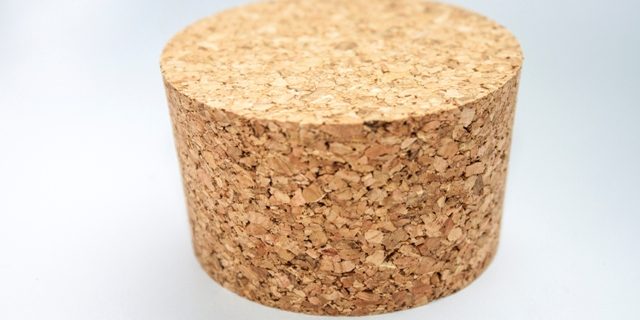Larger conical corks are generally made by punching the corks out of agglomerated cork boards, whilst smaller conical corks can be made by grinding cylindrical corks down to size. This means that smaller natural conical corks can be made by grinding rejected wine corks down (typically these wine corks will have been rejected because of a surface imperfection for example). This means that conical corks that are smaller in diameter than 24mm will typically be reasonably competitively priced against agglomerated corks; once the diameter goes above this however, natural conical corks start to become much more expensive. In fact generally larger conical corks are not made out of single piece natural cork, they are either made out of natural bonded cork (strips of natural cork glued together, as shown below) or agglomerated cork. For larger conical corks, natural bonded cork will typically work out at around 3 times the price of agglomerated cork.
 Conical corks sizes are standardised, but we are able to produce them in pretty much any size required.
Conical corks sizes are standardised, but we are able to produce them in pretty much any size required.







